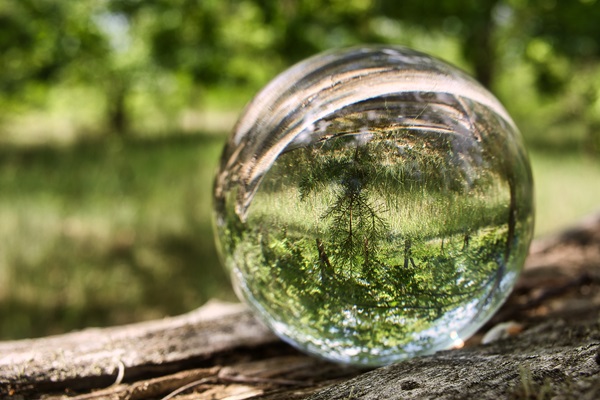Looking at sustainability education through different lenses

Concerns about climate change and the environmental can weigh heavily on young people’s minds. The role of education in encouraging learning about and taking positive action for sustainability has never been more vital. A variety of perspectives and approaches can be used to centre sustainability in education in a practical way.
Outdoor education and nature-based learning
Natural environments can help learners develop a connection with and a caring attitude towards nature and support sustainable behaviour. Several Horizon Europe-funded projects connect classroom education to hands-on, experiential learning that fosters a deeper connection to the natural world.
The OTTER project brought together educators, scientists and creatives to co-design learning experiences outside the classroom that focus on environmental sustainability, in particular reducing plastic waste and recycling. The project’s learning platform offers toolkits, guidelines and other materials to implement OTTER Labs locally to evaluate how the projects can be executed in context.
Nature-based solutions (NBS) are inspired and supported by nature. They are cost-effective and provide environmental, social and economic benefits and help build resilience. These interventions are locally adapted, resource-efficient and systemic. The NBS EduWORLD project connects participants in its EduHub and provides a directory of relevant educational materials to promote nature-based solutions in schools.
Entrepreneurship and the circular economy
Educational projects on entrepreneurship and the circular economy focus on the teaching principles of sustainable business practices, resource efficiency and waste reduction.
The Sustainability-driven Entrepreneurship (SdE) project – the 2023 European Innovative Teaching Award laureate in vocational education (VET) – aimed to boost VET pupils’ understanding of entrepreneurship, sustainable development and innovation skills. These skills enabled them to craft sustainable business concepts and plans and then test their business plans by forming mini-companies or joining cooperatives.
Circular Economy Lab & Observatory (CiELO) is an Erasmus+ project on circular economy practices, particularly related to reclaiming and recovering water and soil. Among other resources, CiELO has produced a cloud platform, an innovative teaching tool accessible to pupils and teachers. It provides multiple teacher training activities and a guide on producing personal videos for pupils to train in how to speak about the circular economy and sustainable development. A video gallery contains examples from each participant country.
Food production and waste management
An important area of sustainability is a holistic approach to the food cycle − from cultivation and harvesting to consumption and waste disposal.
The Erasmus+ Digital Food Education project explores how teachers can use digital technology for food education projects in school. Teachers gain new skills in delivering food education projects with the help of digital technology (video calls to farmers, livestreaming cooking sessions, filming their growing activities).
Children can get creative as Foodie Film Makers, making their own food programmes – researching, creating and broadcasting films about farming and growing and cooking food.
The 2023 European Innovative Teaching Award laureate in early childhood education and care (ECEC), the Sustainable Future – learning from life to life project in Finland, approached food production and consumption as a cycle. Food education, recycling and sorting, waste handling, energy production, water resources and global warming are all connected when teaching young children about creating a sustainable future.
Greening school grounds
Projects focused on greener schools emphasise the integration of sustainable architecture and climate-resilient design to create learning spaces that are energy-efficient and resource-conscious, but also conducive to health and wellbeing.
The Openness, Adaptation, Sensitisation, Innovation and Social Ties (OASIS) programme transforms school grounds in Paris into cool green spaces accessible to both school pupils and local communities. The project aims to reduce vulnerability to heatwaves during hot summers for school children and other community members.
In Flanders, a number of projects provide subsidies and guidance to foster the greening of school grounds to encourage outside play and increase biodiversity and climate change resilience. One example is Blauw Groen Vlaanderen (Blue Green Flanders), which provides guidance on how to plan and implement a greening project and advice on funding.
Additional information
-
Education type:School Education
-
Evidence:N/A
-
Funding source:European Commission
-
Intervention level:N/A
-
Intervention intensity:N/A
-
Participating countries:AustriaBelgiumCroatiaCzechiaEstoniaFinlandFranceGermanyHungaryIrelandItalyLithuaniaNetherlandsPolandRomaniaSlovakiaSpainUnited Kingdom
-
Target audience ISCED:Primary education (ISCED 1)Lower secondary education (ISCED 2)Upper secondary education (ISCED 3)
